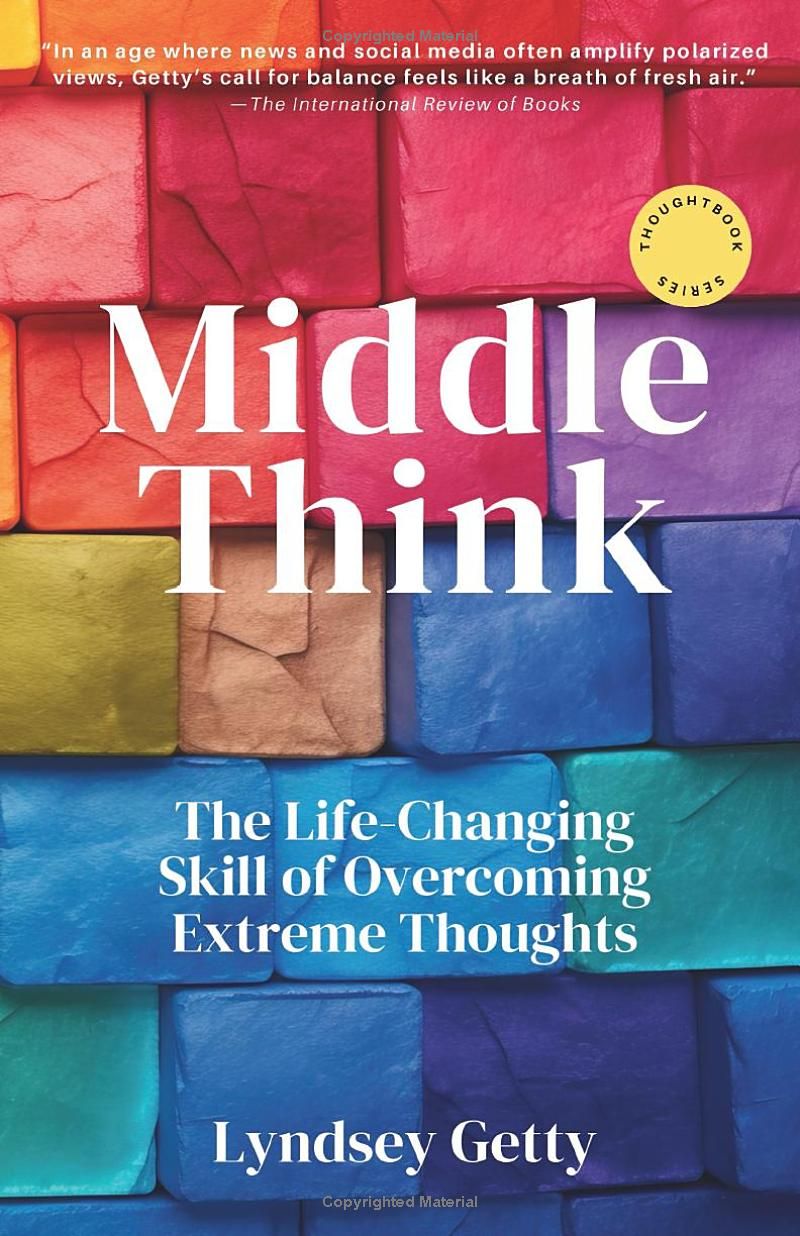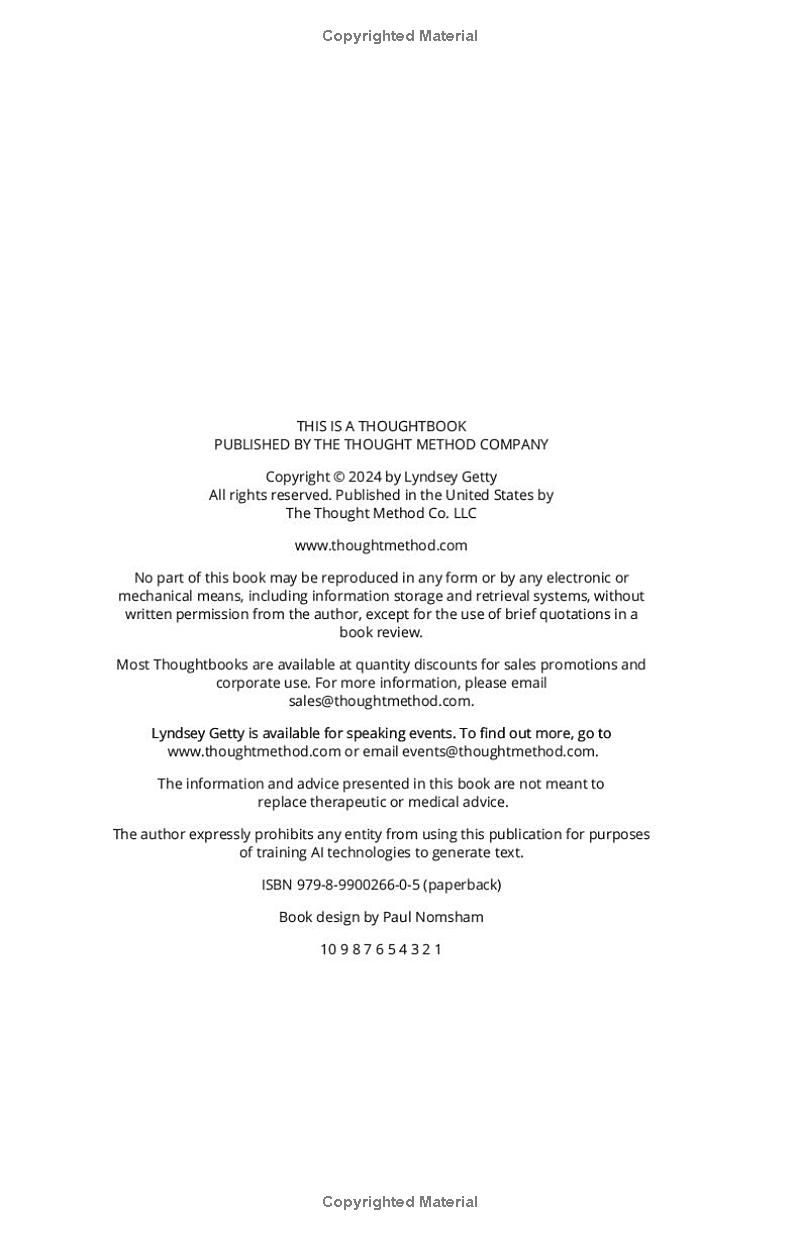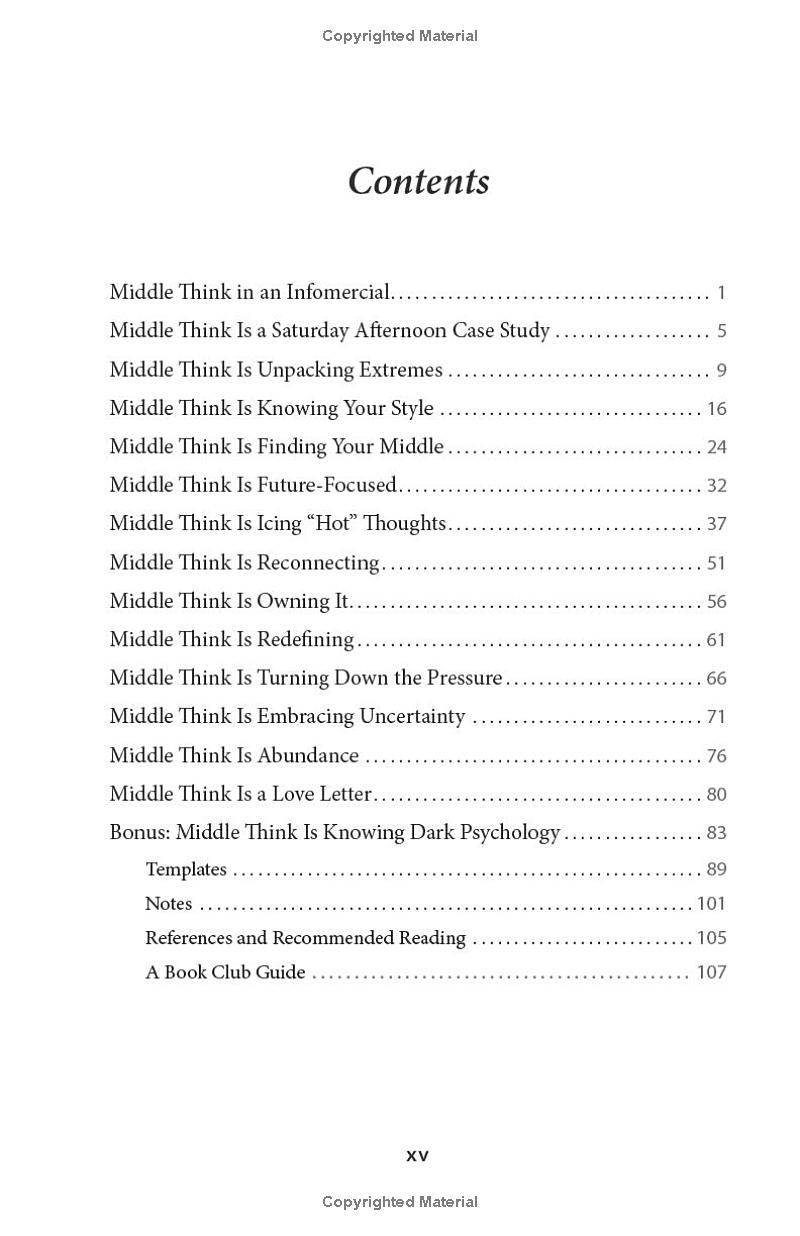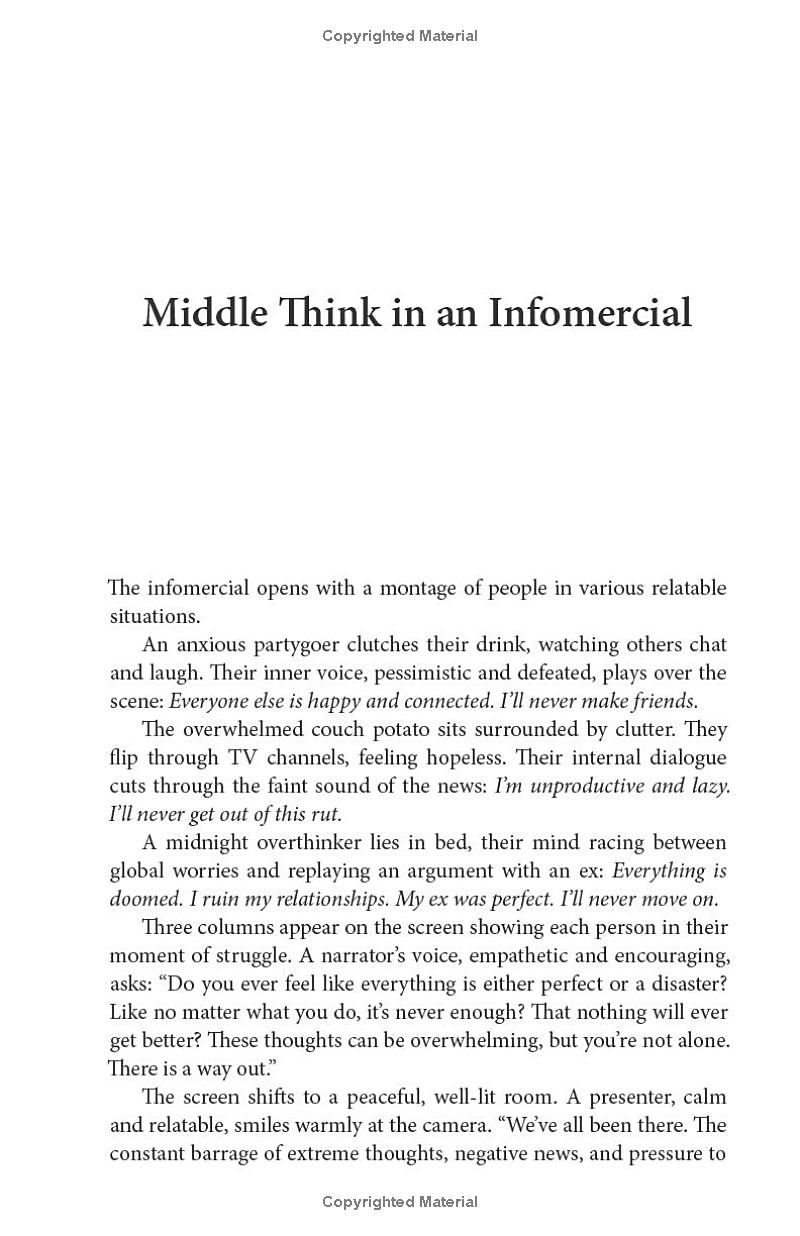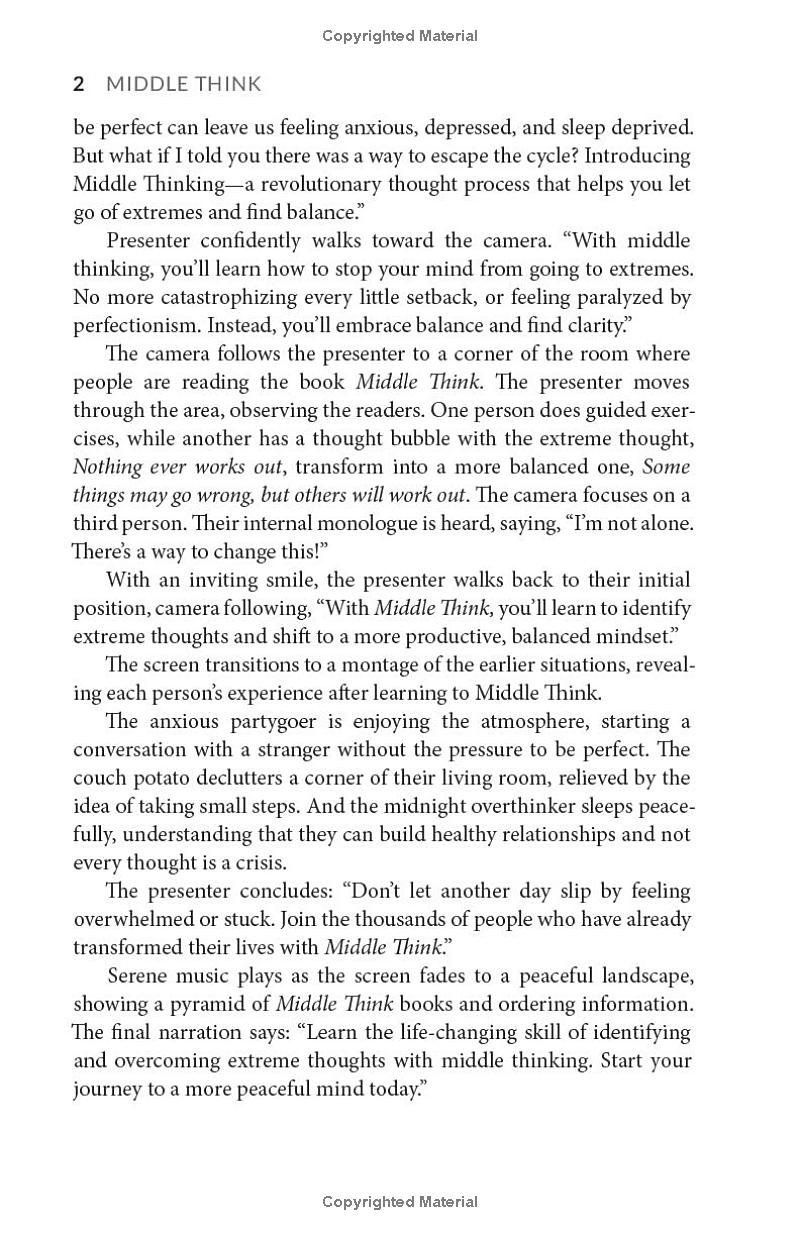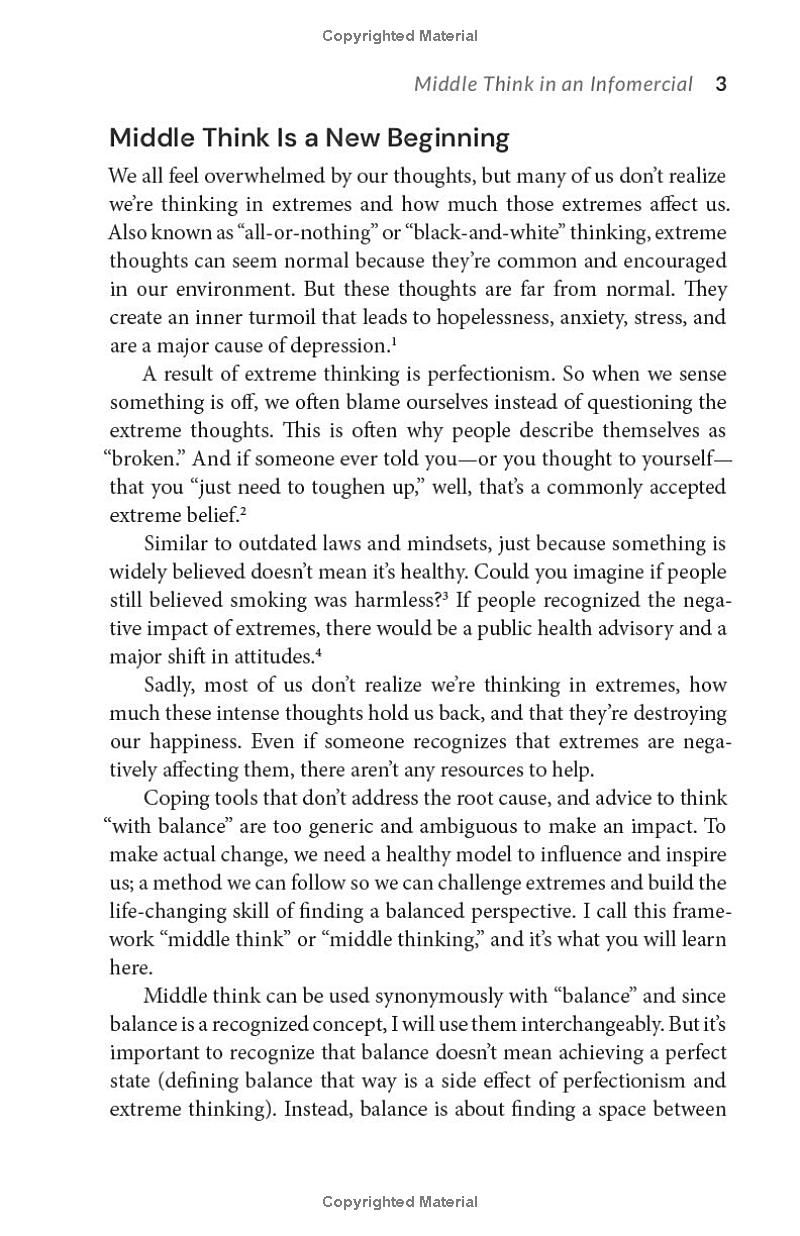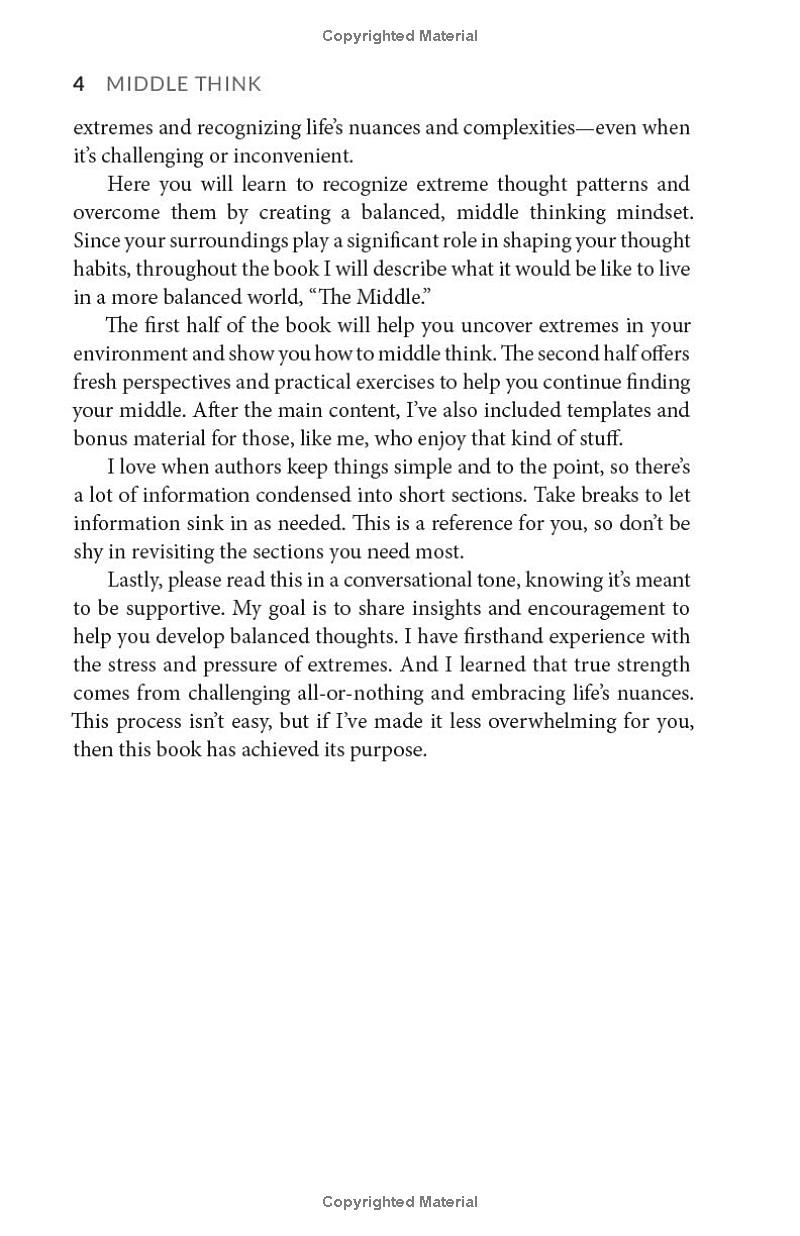In Lyndsey Getty's Middle Think, readers discover a practical method for overcoming the debilitating effects of extreme thinking. Getty challenges the all-or-nothing mentality prevalent in today's society, revealing how media, social pressures, and even well-meaning advice contribute to this pervasive mental struggle. Through relatable examples and insightful exercises, she introduces "middle thinking," a balanced approach that acknowledges the complexities of life without resorting to unrealistic optimism or self-denial. This empowering guide helps readers identify their extreme thought patterns in various life areas and offers a simple yet powerful framework for managing anxiety, perfectionism, and self-doubt, ultimately fostering a calmer, more balanced perspective.

Review Middle Think
"Middle Think" by Lyndsey Getty isn't just another self-help book; it's a refreshing antidote to the pervasive culture of extremes. The book resonated deeply with me, not just because of its practicality, but because it addressed a pervasive issue I, and I suspect many others, grapple with daily: the tyranny of extreme thinking. We live in a world that often encourages black-and-white thinking, where nuance is lost in the clamor of polarized opinions and unrealistic expectations. Getty’s concept of “middle thinking,” however, offers a much-needed path towards balance and clarity.
What struck me most was the book's approachable tone. Getty avoids the often-cloying self-help jargon, instead employing a conversational style that feels genuinely supportive and understanding. She acknowledges the commonality of extreme thought patterns – the anxieties, perfectionism, and self-doubt that plague so many of us – and makes it clear that you're not alone in this struggle. This sense of shared experience is incredibly validating and sets the stage for the practical advice that follows.
The framework for "cooling hot thoughts" is surprisingly simple yet powerful. It's not about suppressing negative emotions or forcing artificial positivity, but about acknowledging them, understanding their root, and then gently reshaping them into a more balanced perspective. The exercises and prompts throughout the book are meticulously designed to guide you through this process, encouraging self-awareness without feeling overwhelming or preachy. They're insightful and actionable, providing a tangible way to implement the concepts discussed. I found myself repeatedly returning to certain exercises, realizing new layers of understanding each time. This active engagement is key to the book’s effectiveness.
Getty's insights into how societal pressures, media, and even well-meaning advice contribute to extreme thinking are equally valuable. She doesn't just offer personal solutions; she provides a broader cultural context, illuminating how the systems around us often reinforce the very thought patterns we're trying to overcome. This wider perspective is crucial for lasting change, because addressing the root causes helps prevent a relapse into old habits.
While the book itself is a relatively quick read, its value lies in the ongoing application of its principles. The templates and exercises aren’t just for one-time use; they serve as ongoing tools for self-reflection and recalibration. The book's lasting impact comes from its ability to equip you with the skills and perspective to navigate future challenges with more balance and less emotional turmoil. For anyone seeking a practical, compassionate, and effective guide to managing extreme thoughts, "Middle Think" is a must-read. It's not a quick fix, but a valuable tool for building a more peaceful and resilient mindset. In a world often characterized by extremes, this book offers a welcome and necessary middle ground.
Information
- Dimensions: 5.5 x 0.3 x 8.5 inches
- Language: English
- Print length: 132
- Part of series: Thoughtbooks
- Publication date: 2024
Preview Book
